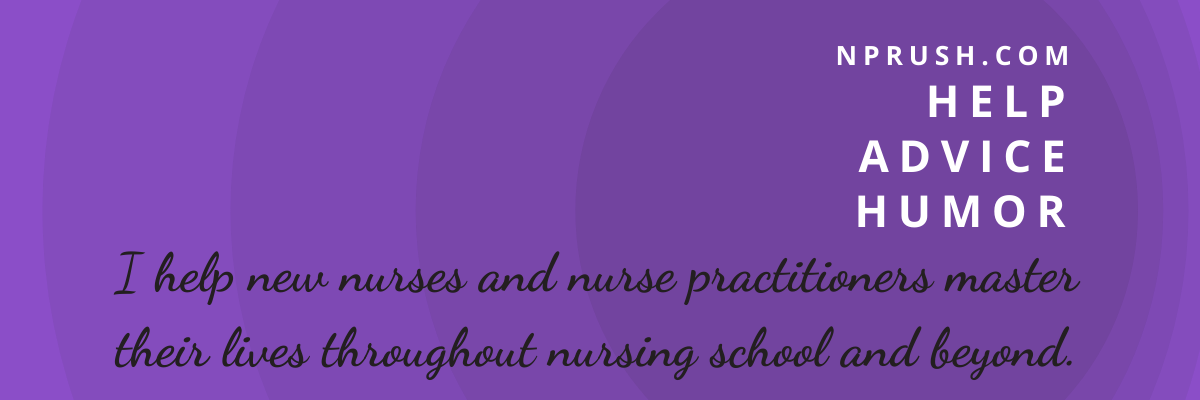As nurses, we work hard for our paychecks. Unfortunately, financial savvy is one area that nurses often neglect. But letting your personal financial health waste away can be hazardous for your physical health.
Whether you realize it or not, unorganized financials adds to your stress level every single week.
Here are three things you can do now to take control of your finances: know your numbers, learn about finances, and set financial goals.
1. Know your numbers
Knowing your own numbers is an important first step. But where do you start?
Here’s the list I followed a few years ago when I finally made up my mind to pay more attention to my finances:
- Look at each paycheck. Is your withholding set correctly? Is your 401K set up right? Did you swipe your badge too many times in the cafeteria last month? Pay attention to the money that is being withdrawn from each check. You have to know how much money is coming in before you can make wise choices about where it goes.
- Create lists of bank accounts and insurance policies (including life, home and all autos). Include the account numbers and balances, if applicable. This is just a list that I created so that everything is in one place.
- Create a list of debts, including mortgages, credit cards, and loan accounts. Be sure to include the account numbers and balances.
- Create a list of all investments, including retirement funds and personal investments.
- Create a list of all other accounts not included above. For example, we had college funds for the kids that I included.
Then I created a list of weekly and monthly financial tasks.
Because we own a side business (vacation home rentals), I have to keep books for our business and for us personally. It’s a hassle, that’s why keeping everything organized is crucial.
My financial tasks lists looks like this:
Weekly:
Review income and expenses
Pay bills
Review each checking/savings account
Monthly:
Check my credit score
Check 401K account
Check investment accounts
Review and pay taxes (for our business)
Balance bank accounts
Review debt balances

The next thing I did to know my numbers was to set a reminder on my phone to check my 401K account monthly. I didn’t pressure myself to do anything with it (unless I had time), but I made it a point to check the account monthly just to see how the investments were doing, how much money was vested, and if everything was still in the right place.
This may sound like a lot, but it’s doable. If you can get it all organized, you’re sure to be able to stay on top of your numbers on the regular so that you can move on to steps two and three.
2. Set financial goals for yourself
It’s okay to start with simple goals like holding yourself accountable for checking your balances every week or having your financial lists organized by the end of spring.
But eventually, you’ll want to consider larger goals as well, like getting out of debt or short-term and long-term savings goals for vacation and retirement.
Use a money calculator to determine how much you can save over a period of time.
This is a quick way to help you figure out how to save for that Disney vaca next year.
3. Educate yourself on financial matters
If you don’t learn about how money works, you will never be able to build wealth for yourself or your family.
Educating yourself on money and finances will boost your confidence, impacting your ability to make financial decisions, make quality investment choices, and meet your financial goals.
If you can, meet with a financial advisor for some insight on your specific financial needs. Many employers offer this as an annual perk for full-time employers. Don’t be afraid to pick their brains and ask for advice.
Financial advisors can help you learn more about how to maximize your 401K or help you find strategies for trimming debt.
One of the most critical areas where nurses struggle is not understanding their own investments. If you have a 401K through your employer, then you have investments.
Don’t be afraid to learn about how to benefit from this long-term retirement plan and maximize its use. And by all means, don’t wait too long to begin planning for retirement.
Need someplace to start? Try these favorite books on money and finances:
- I Will Teach You To Be Rich by Ramit Sethi
- The Millionaire Next Door: The Surprising Secrets of America’s Wealthy by Thomas Stanley
- Think and Grow Rich by Napoleon Hill
- The Science of Getting Rich by Wallace Wattles
Knowing your numbers, learning about finances, and setting financial goals are great ways to get a better handle on your spending and your savings.
While you’re sorting out your finances, remember this is a journey. When you take your time to organize and understand your finances, you will start making wiser spending decisions and your confidence will grow as the debt decreases.
If I can do it, so can you!
Cheers!






